North Africa
North Africa is a cultural subcontinent in the northern part of Africa. It is sometimes defined as extending from the shores of the Atlantic, from Morocco to the west, to the Suez Canal and to the Red Sea, in Egypt to the east. The most commonly accepted definition includes from East to West : Egypt, Sudan (sometimes included in East Africa), Libya, Tunisia, Algeria, Morocco, Western Sahara and Mauritania (often included in West Africa). The United States Census Bureau defines North Africa as Algeria, Libya, Egypt, Morocco and Tunisia. The countries of North Africa share a common ethnic, cultural and linguistic identity specific to this region, such as the language (Arabic), as well as religion (Islam). North Africa has been inhabited by Berbers since the beginning of history, while the eastern part of North Africa was home to the ancient Egyptians, who maintained close relations with the Berbers during antiquity. After the Muslim conquest in the 7th century, the region underwent an Arabization and Islamization process which has since redefined its cultural landscape. The distinction between North Africa and sub-Saharan Africa is historically and ecologically significant due to the natural barrier created by the Sahara Desert for much of modern history. North Africa is populated by Arabs and Berbers, while sub-Saharan Africa is populated by blacks. From 4000-3600 BC. AD, following the abrupt desertification of the Sahara due to gradual changes in Earth’s orbit, this barrier culturally separated the North from the rest of the continent. As the maritime civilizations of the Phoenicians, Greeks, Romans, Muslims and others facilitated communication and migration across the Mediterranean Sea, North African cultures were more closely linked to Southwest Asia and Europe than in sub-Saharan Africa. Islamic influence in the region is also significant, and North Africa is a major part of the Muslim world.
An increasing number of researchers have postulated that North Africa, rather than East Africa, served as a point of exit for modern humans who first left the continent during migration from Africa.
Etymology
North Africa is also called White Africa. This term contrasts with that of “black Africa”, designating sub-Saharan Africa. Georg Wilhelm Friedrich Hegel also called it “European Africa” while Elisha Reclus saw in North Africa an appendage of the Latin Arc. The expression white Africa referred either geographically to the north of the Sahara or, ethnically, to the “white” minorities of “black” Africa : Afrikaners in the south, Tuaregs in the Sahel.
Geography
The Atlas mountains extend over a large part of Morocco, northern Algeria and Tunisia, are part of the fold mountain system which also crosses much of southern Europe. They retreat to the south and east, becoming a steppe landscape before meeting the Sahara Desert, which covers more than 75% of the region. The sediments of the Sahara cover an ancient plateau of crystalline rock, some of which are more than four billion years old. South of the Atlas is the arid and desert expanse of the Sahara Desert, the largest sandy desert in the world. In places, the desert is cut by irregular rivers called wadis (or wadis) which do not run until after the precipitation but are generally dry. The main reliefs of the Sahara include ergs, large seas of sand which sometimes form immense dunes ; the hammada, a flat rocky plateau without soil or sand ; and the reg, a flat surface made up of gravel or small stones. The Sahara covers the southern part of Morocco, Algeria and Tunisia, and most of Libya. Only two regions of Libya are outside the desert : Tripolitania to the northwest and Cyrenaica to the northeast. Most of Egypt is also desert, with the exception of the Nile and the irrigated land along its banks. The Nile Valley forms a narrow fertile streak that spans the entire length of the country. The sheltered valleys in the Atlas Mountains, the Nile Valley and Delta, and the Mediterranean Sea are the main sources of fertile agricultural land. A wide variety of valuable crops, including grains, rice and cotton, and woods such as cedar and cork, are grown. Typical Mediterranean cultures, such as olive, figs, dates and citrus fruits, also thrive in these regions. The Nile Valley is particularly fertile, and most of the population in Egypt lives near the river. Elsewhere, irrigation is essential to improve crop yields on the margins of the desert.
North Africa’s countries
-
- Algeria
- Morocco
- Western Sahara
- Tunisia
- Libya
- Egypt
- Mauritania
-
Tunisia
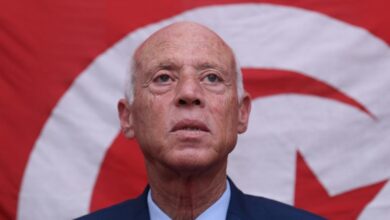
Tunisian President Seizes Control Of Electoral Commission In Latest Power Grab
Tunisian President Kais Saied on Friday seized control of the country’s election commission by replacing most of its members, reported…
Read More » -
Libya
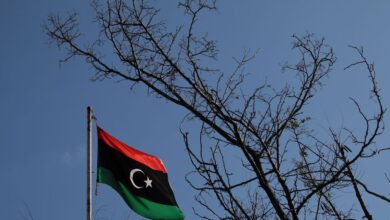
UN Confirms Libya’s East, West Administrations End Election Talks Without Deal
The United Nations (UN) on Tuesday announced weeklong talks between officials from Libya’s Tripoli and Tobruk-based administrations in the Egyptian…
Read More » -
Tunisia
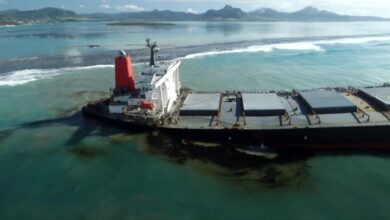
Tunisian Ministry Confirms No Leaks Detected In Xelo Ship Carrying 750 Tonnes Fuel
Tunisian officials on Sunday confirmed divers detected no leakage after inspecting the tanker loaded with 750 tons of fuel that…
Read More » -
Algeria
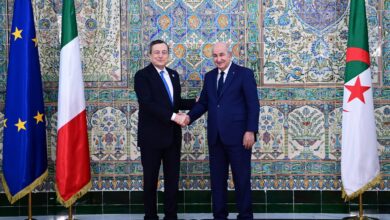
Algerian President Tebboune Signs Deal With Italian PM To Supply Natural Gas
Algerian President Abdelmadjid Tebboune on Monday signed an agreement with Italian Prime Minister Mario Draghi that aims to strengthen energy…
Read More » -
Tunisia
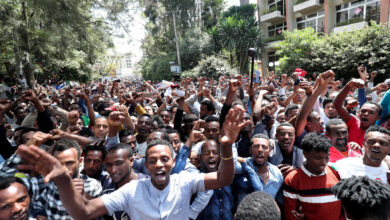
Tunisian Masses Take To Streets Calling For End To President Kais Saied’s Rule
Tunisian masses came out on the streets on Sunday to protest against President Kais Saied, accusing him of imposing one-man…
Read More » -
Tunisia
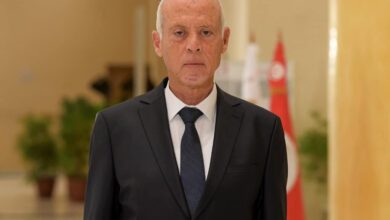
Tunisian President Kais To Change Parliamentary Voting Process Before Elections
Tunisian President Kais Saied on Wednesday outlined new changes in parliamentary voting in elections expected to be held in December,…
Read More » -
Tunisia
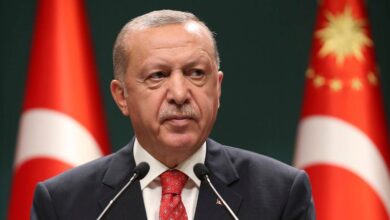
Tunisian Ministry Calls Erdogan’s Comments On President’s Decree Unacceptable
Tunisian Foreign Ministry on Tuesday condemned Turkish President Tayyip Erdogan’s comments on President Kais Saied’s decision to dissolve parliament last…
Read More » -
Tunisia
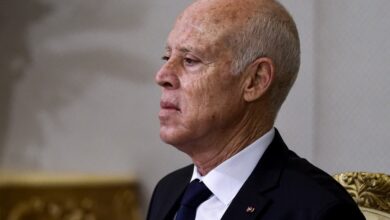
Tunisian President Kais Saied Dissolves After Online Parliament Meeting
Tunisian President Kais Saied on Wednesday dissolved the country’s parliament, eight months after suspending it in a July power grab,…
Read More » -
Tunisia

Tunisian President Kais Saied Warns Against Attempts To Hold Parliament Sessions
Tunisian President Kais Saied on Monday warned against attempts to hold sessions of the suspended parliament saying forces and institutions…
Read More » -
Tunisia

Tunisians Protest Against President Kais Saied & His Public Poll On Constitutional Reforms
Thousands of Tunisians came out on the streets on Sunday, the 66th anniversary of Tunisia’s Independence Day, to protest against…
Read More » -
Libya

Libyan Political Crisis Likely To Result In Instability- UN Political Affair Chief Warns
The Libyan political crisis over control of executive power is likely to result in instability and parallel governments, the UN…
Read More » -
Egypt
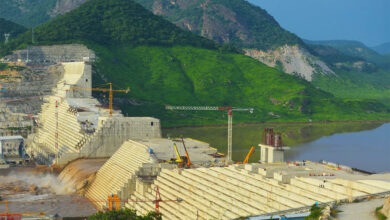
Egypt, Sudan Asks Ethiopia To Join Serious Negotiation Talks On Nile Dam Project
Egypt and Sudan have asked Ethiopia to join them for serious negotiation talks aimed at resolving an impasse over the…
Read More » -
Tunisia

Tunisian President Kasi Saied Appoints Members Of New Temporary Council Of Judges
Tunisian President Kais Saied on Monday appointed a temporary council of judges that replaces an independent watchdog that he abolished…
Read More » -
Libya
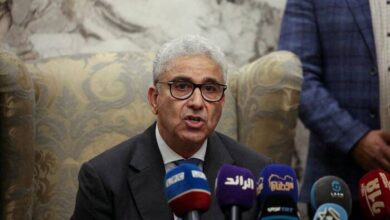
Libyan Prime Minister Fathi Bashagha’s New Cabinet Gets Sworn-In On Thursday
A standoff between the two Libyan rival governments worsened on Thursday after the eastern parliament swore in a new administration…
Read More » -
Egypt
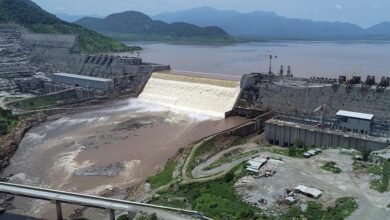
Sudanese Ministers Stress Need To Sign Legal, Binding Agreement On GERD Issue
Sudanese ministers on Thursday stressed the need to sign a legal and binding solution to the ongoing Grand Ethiopian Renaissance…
Read More » -
Libya
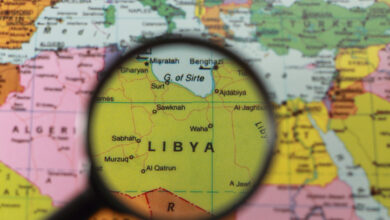
UN Special Adviser For Libya Calls For Organizing Free & Fair Elections Soon
The United Nations (UN) special adviser for Libya, Stephanie Williams, on Wednesday called for organizing free and fair elections in…
Read More » -
Tunisia

Tunisian People Protest Kais Saied’s Approval Of New Interim Supreme Judiciary Council
Tunisian people came out on the streets on Sunday to protest President Kais Saied’s extended power grab, reported TRT World.…
Read More » -
Libya
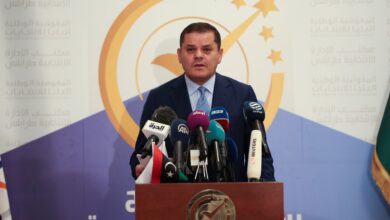
Libyan Interim Prime Minister Dbeibah Vows To Draft New Election Law To Resolve Crisis
Libyan Prime Minister Abdul Hamid Dbeibah on Friday vowed to draft a new election law that is expected to resolve…
Read More » -
Libya
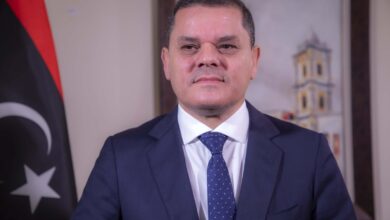
Libya’s Parliament Unanimously Names Former Minister Fathi Bashagha As New PM
Libya’s east-based parliament on Thursday unanimously named former interior minister Fathi Bashagha as the country’s new Prime Minister, replacing Abdul-Hamid…
Read More » -
Libya
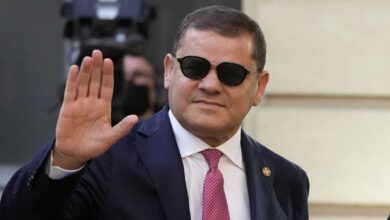
Libyan Prime Minister Abdul Hamid Dbeibah Survives Assassination Attempt Unharmed
Libyan Prime Minister Abdul Hamid Dbeibah escaped unharmed from an assassination attempt when unidentified militants fired bullets on his car…
Read More » -
Libya
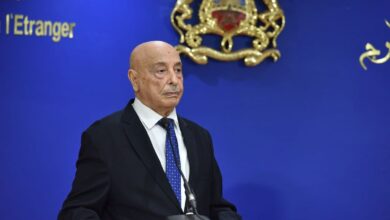
Libya’s Parliament To Appoint New Interim Prime Minister Amid Increasing Tensions
Libya’s eastern-based parliament on Monday said it will appoint a new prime minister this week who will head the transitional…
Read More » -
Libya
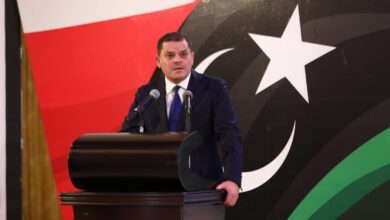
Libya’s Parliament Lists Conditions To Meet In Order To Be Country’s Next Prime Minister
Libya’s eastern-based parliament on Tuesday listed a series of criteria that candidates need to meet in order to be eligible…
Read More » -
Egypt
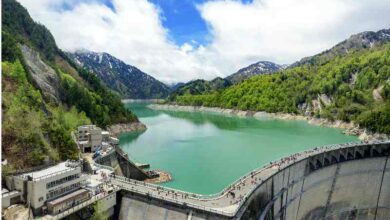
Egypt Willing To Resume Negotiation Talks With Ethiopia On Nile Dam Issue
Egypt on Tuesday said it is willing to resume negotiation talks with Ethiopia to reach an agreement on a major…
Read More » -
Egypt
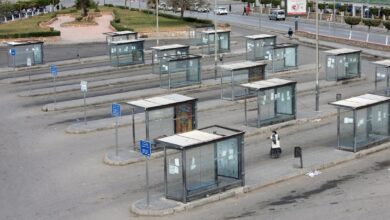
Egypt Announces New Coronavirus- Related Restrictions Amid Increasing Cases
Egypt has announced a slew of new coronavirus-related travel restrictions at airports, seaports, and land crossings, as the country reports…
Read More » -
Libya

Libya’s Parliament Speaker Saleh Calls For Installation Of New Government
Libya’s eastern-based parliament speaker, Aguila Saleh, on Monday said the interim government, led by Prime Minister Abdul Hamid Dbeibah, must…
Read More »

